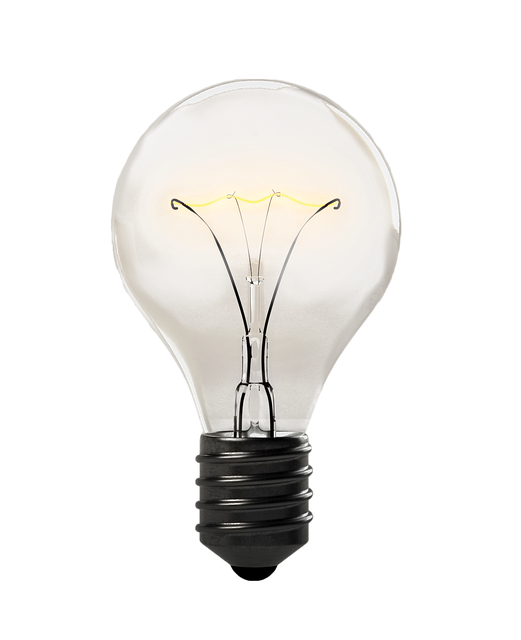
We should all be grateful for the light bulb—that brilliant invention that replaced moonlight, candle light, and lanterns.
You may be surprised to learn that Thomas Edison didn’t invent the light bulb himself. Twenty-three other light bulbs, invented by a handful of inventors working through the science of light, paved the way for Edison to patent the first incandescent light bulb in 1880. It was the light bulb that could actually be sold without catching on fire! Edison uncovered how to make a cotton thread filament glow without, essentially, blowing up. If we’re grateful for the light bulb, we’re grateful for the inventive mind of Thomas Edison, too.
Buying the Right Bulb
Light bulbs have most certainly come a long way. Now, we have all kinds of different bulbs to choose from.
The most energy-efficient light bulb on the market is an LED (light emitting diode) bulb. LEDs are known for their longer lifespans, especially since they shed light for 20+ years! Plus, in terms of environmental friendliness, LEDs do not contain mercury, the heavy metal that’s best left out of our homes and the landfills around the world.
LEDs have a generous lumen output per watt. What’s a lumen? A lumen is the amount of light emitted from a light bulb. The higher the lumen, the brighter the light. Watts refers to the energy a light bulb uses. The lower the wattage, the lower your electric bill is.
Consider these light bulb comparisons:
- Incandescent light bulbs offer 15 Lm/w and last around 1,000 hours
- Halogen light bulbs offer 22 Lm/w and last around 4,000 hours
- Compact fluorescent light bulbs (CFLs) offer 63 Lm/w and last around 10,000 hours
- LEDs offer 74 Lm/w. Unlike the other light bulbs mentioned above, LEDs won’t suddenly fail. Their operational lifetime extends beyond these other light bulbs because LEDs start emitting lower light levels until light gradually fades away.
If you’re curious about the light bulbs you buy, read the lighting label on the back of the light bulb’s box. These light bulb labels are required by the U.S. Federal Trade Commission, so consumers have access to information like bulb brightness, estimated yearly cost, life expectancy, light appearance, energy used, and mercury information.
Don’t Leave the Lights On
Keeping the lights on at home uses energy. Using more energy will result in a higher energy bill. One money-saving technique to keep your energy bill low is to switch off lamps and lights at home as you move from room to room. Re-consider ambient lighting, or if you are set on keeping a room bright, use only your most energy-efficient light bulbs and lamps.
What Do I Do When the Bulb Burns Out?
What about after the bulb burns out? Is it okay to toss the light bulb right into the trash? Even though light bulbs are made out of glass, standard light bulbs are not recyclable. There are too many pieces and fine wires to separate out. Standard light bulbs, halogen light bulbs, and LEDs are A-OK to be thrown away in your kitchen trashcan and wheeled right to the curb.
CFLs and fluorescent light bulbs, on the other hand, can’t be thrown away with the coffee grounds. CFLs and fluorescent light bulbs contain a small amount of mercury. As mentioned above, mercury doesn’t belong in the landfill. As of right now, there is no legislation making the trashing of CFLs illegal, but do your part as a responsible citizen and homeowner and dispose of CFLs responsibly—at a local recycling center or during an electronic waste (e-waste) drive in your town.
Fun Ways to Bulb Out at Home
Thomas Edison may have never predicted the ways in which we put light bulbs to work in our world today. These days, light bulbs are voice-enabled, musically inclined, and easily accessed (and dimmable) through smart technology. We live in an era where anything is possible. So, if you’re looking for light bulbs that go above and beyond a normal bulb, you’re in luck.


